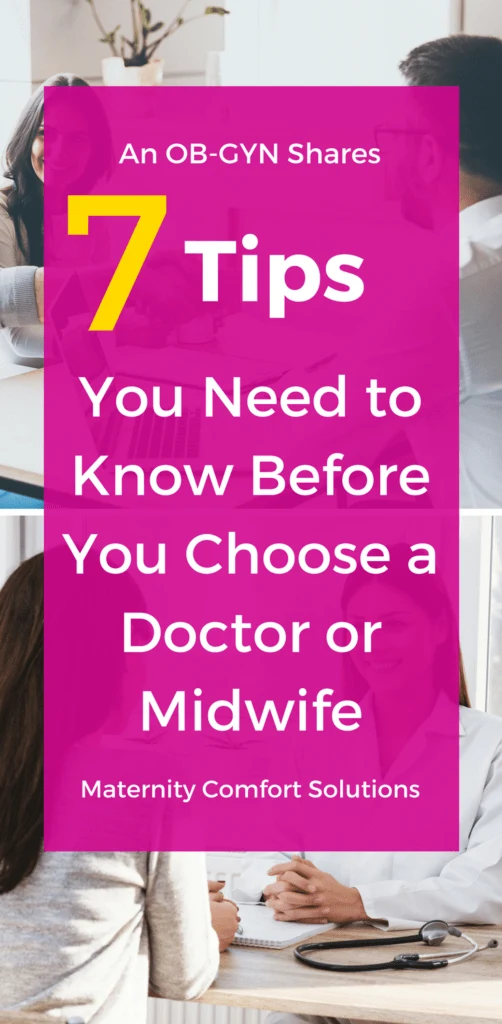
What are the tips you need to know when choosing a prenatal care provider? First and foremost, you will want to find a clinician (physician or midwife) who is well-qualified, experienced and has a good reputation among the people you trust. If I had to choose one quality it would be finding a provider who is experienced.
In labor and delivery, most deliveries are uneventful. However, for the same reasons we buy insurance, we want to be sure our provider is prepared for the unexpected. Having practiced 20 years it is important you choose a practitioner who has on the labor and delivery floor

This post contains affiliate links. You can read our affiliate disclaimer at the bottom of this post.
Here are some additional factors and questions you will want to consider while choosing a prenatal care provider:
- Your prenatal and postpartum care will be close to one year in duration and there will be many visits. So think long term.
- It is important that you and your provider share the same “philosophy” about the fundamentals of labor and delivery management. This is assuming that your differences are all within the standards of accepted medical care.
- You do not want to be in conflict with your provider about your management. Remember that your desires and expectations are based on your personal experiences and information you have acquired on your own as well as from close friends and family. It is also important to realize that your tolerance level of risk vs benefit for a particular clinical approach may differ.
- Management decisions will occur during your labor which can also be affected by the facility where you choose to deliver. This is simply a fact solely dependent on the facility’s access to medical interventions.
- Discuss access to emergent intervention such as anesthesia (if and when desired), etc.. These are topics that need to be discussed early on, so there are no misunderstandings about management later in your pregnancy. You want to be sure you are choosing a prenatal care provider who will be supportive from the beginning of your care to the time of delivery.
- Discuss the labor and delivery coverage arrangements within your provider’s group of practitioners so you will be aware of who may be present for your delivery.
- Ask if you will have an opportunity to meet the clinicians who may be covering labor and delivery or the birthing center when you arrive in labor. (Coverage for home deliveries will be addressed directly by your provider).
It is important that you discuss the issues listed above so you are in alignment with your provider and the services provided at the facility where you will deliver.
Be aware of the fact that your provider’s management options (not clinical decisions) will be impacted by the services available where you deliver. What you desire for your childbirth experience may only be offered at a particular health care facility and is something you want to be clear about at your first prenatal visit. (If you are planning a home birth, you will want to discuss access to outside services, if additional medical intervention is necessary.)
What is most important about the information noted above, is that you never feel your expectations were not met as a result of poor communication or lack of information prior to your delivery. This assumes there are no unforeseen circumstances or complications that require urgent changes in your management or “birth plan”.
**** If you have a trusting and fully disclosed relationship with your provider, you are far more likely to have a positive birth experience.
Courtesy of Childbirth U
(The information above is for educational purposes only and is not all-inclusive. During the process of choosing your provider, also remember to thoroughly discuss any concerns about your medical history.)
It is our hope that you have learned some important information when it comes to choosing a prenatal care provider.


